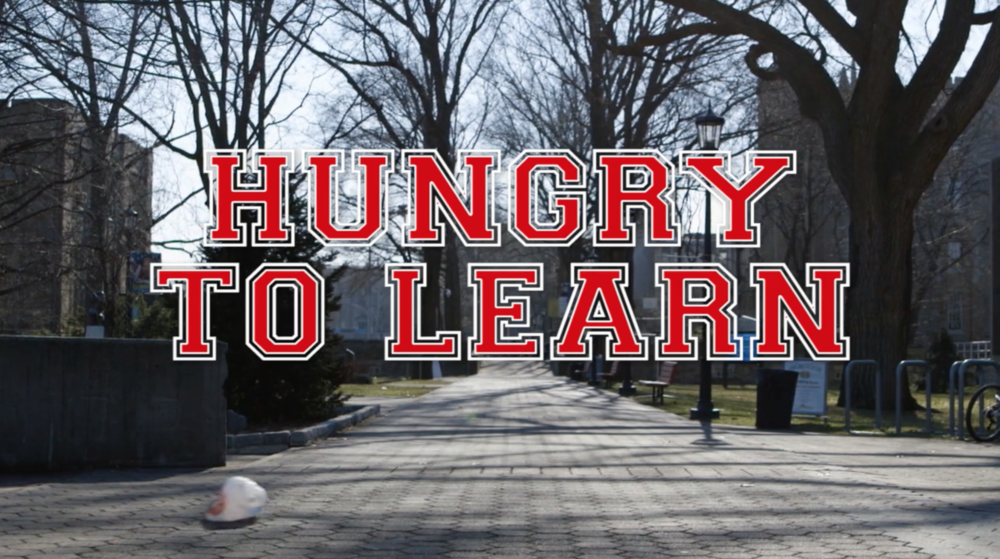Hungry To Learn
Synopsis
In college classrooms across the United States, it is not unusual to hear someone’s stomach grumbling during moments of relative silence — an audible reminder that students might not be receiving the nutritional care or institutional support that was once such an ingrained part of academic life, years before food insecurity was a widespread problem among our nation’s youth. Today, despite a lack of consensus about the actual number of college students whose basic needs are not being met, most researchers agree that an assortment of social problems, including homelessness, parental abandonment, poverty, and mental health issues as well as the rising costs of tuition, have contributed to an increased number of young people not being able to make ends meet, and often going hungry as a result. One such researcher, Sara Goldrick-Rab, (a professor of higher education and sociology at Temple University), is featured in Hungry to Learn. The film is directed by Emmy Award-winner Geeta Gandbhir, and is eye-opening look at the challenges that loom over low-income families. Produced by Soledad O’Brien, a broadcast journalist who has frequently reported on economic disparities and the literal and figurative “costs” of going to college, this bracing film follows four undergraduates from different universities who speak candidly about their day-to-day struggles. Because financial aid does not always cover meal plans and campus housing fully, these all-too-human subjects (whose families are largely out of the picture) depend upon emergency food pantries and the kindness of strangers. Moreover, they often resort to part-time and full-time employment, which frequently necessitates long commutes between those low-paying jobs and their college campuses. Some students, such as Shaquara (the daughter of an undocumented widower living in Brooklyn), are especially vulnerable, insofar as they are often denied financial assistance and feel too ashamed to ask for help from their teachers or school administrators. Thankfully, Goldrick-Rab and other participants at an annual conference called #RealCollege (organized by the Hope Center for College, Community, and Justice) are addressing Shaquara’s and other students’ needs, helping to educate the public about a crisis that, for too long, has been ignored by government officials. As greater numbers of institutions of higher learning begin to resemble for-profit corporations, it is imperative to heed these individuals’ — and this powerful film’s — call for change.
By David Scott Diffrient

Filmmakers
Geeta Gandbhir
United States
2019
84 min
(English)
Call to ACT
Rams Against Hunger and Mobile Food Pantry